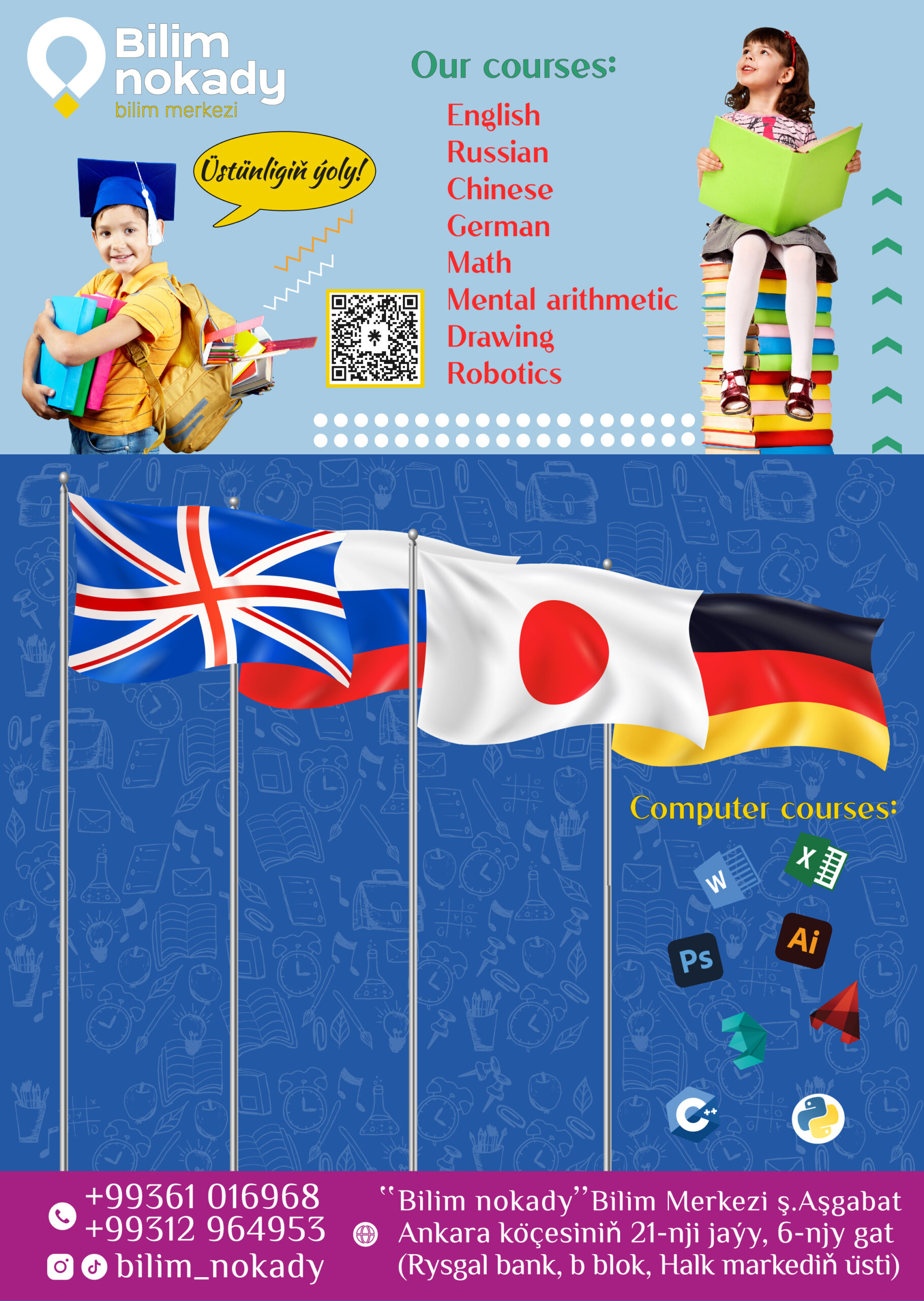Turkmenistan pays great attention to improvement of the activities of educational and training establishments and compliance of the national education system with international standards. In such a situation there is a great demand for learning a foreign language, English, in particular, as English is a chief medium of communication all over the world.
One of the methods of making English classes more effective and interesting is the use of literature in the ELT classroom. The role of literature in the ELT classroom has been re-assessed and many now view literary texts as providing rich linguistic input, effective stimuli for students to express themselves in other languages and a potential source of learner motivation.
Scientists distinguish between literature with a capital L – the classical texts e.g. Shakespeare, Dickens – and literature with a small l, which refers to popular fiction, fables and song lyrics. The literature used in ELT classrooms today includes the work of writers from a diverse range of countries and cultures using different forms of English. The types of literary texts that can be studied inside and outside the ELT classroom include:
1. Short stories
2. Poems
3. Novels
4. Plays
5. Song Lyrics
Literary texts can be supplemented by audio-texts, music CDs, film clips, podcasts, all of which enhance even further the richness of the sensory input that students receive. Literary texts offer a rich source of linguistic input and can help learners to practice the four skills – speaking, listening, reading and writing – in addition to exemplifying grammatical structures and presenting new vocabulary. Literature can help learners to develop their understanding of other cultures, awareness of ‘difference’ and to develop tolerance and understanding. At the same time literary texts can deal with universal themes such as friendship, war and loss that are not always covered in the course books. Literary works help learners to use their imagination, enhance their empathy for others and lead them to develop their own creativity. Literature lessons can lead to public displays of student output through posters of student creations e.g. poems, stories or through performances of plays. So, for a variety of linguistic, cultural and personal growth reasons, literary texts can be motivating methods used in classrooms.
Literature plays an important role in the English programs of many non-English speaking countries. Literature helps students acquire a native-like competence in English, express their ideas in good English, learn the features of modern English, learn how the English linguistic system is used for communication, see how idiomatic expressions are used, speak clearly, precisely, and concisely, and become more proficient in English, as well as become creative, critical, and analytical learners. In sum, literature provides students with an incomparably rich source of authentic material over a wide range of registers. At our lesson we also try to use literary texts. Students read not only English texts in original, but they also read Turkmen folk-tales in English and it helps to improve this foreign language. Literature is not only a tool for developing the written and oral skills of the students in the target language but also is a window opening into the culture of the target language, building up a cultural competence in students.
.
Myahri Gurbanova,
Magtymguly Turkmen State University
English Language and Literature Faculty
Foreign Languages Department.





Comments